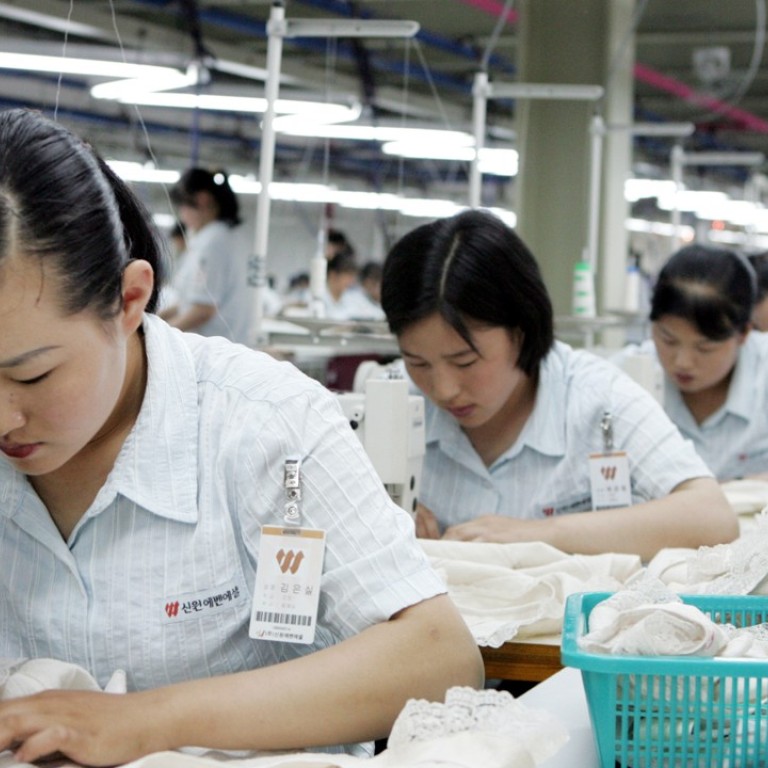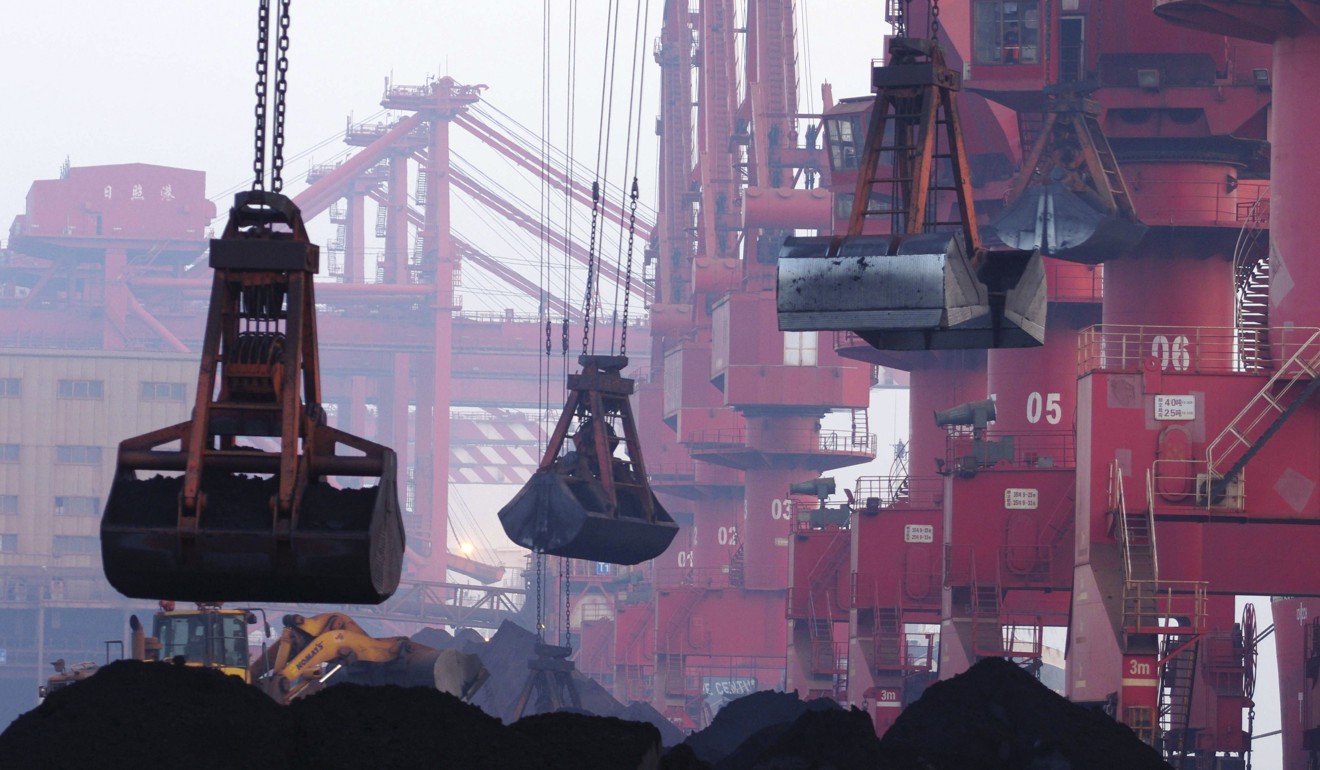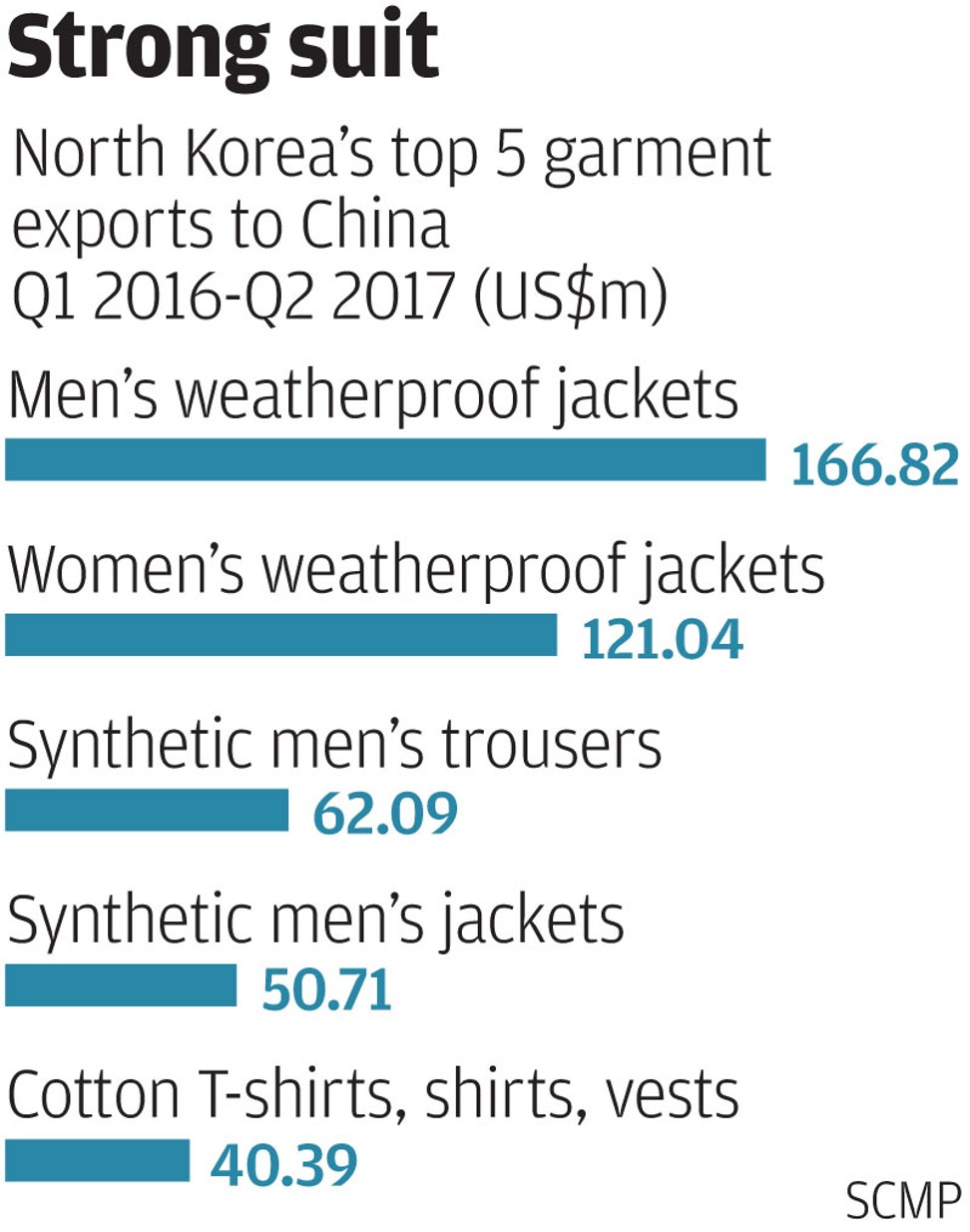
The North Korean export industry that’s making the most of China’s coal ban
UN sanctions mean reclusive dictatorship loses its main source of foreign earnings, but textiles manufacturers quickly move to fill the void
Clothing overtook coal to become the main North Korean export to China in second quarter after the United Nations Security Council slapped sanctions on Pyongyang, China Customs data shows.
Of the US$385.2 million of goods China imported from North Korea in the quarter, 38 per cent, or US$147.5 million, consisted of garments.
At the same time, China exported US$35 million in clothing to North Korea.
China imported US$68 million of North Korean seafood during the period – before Beijing banned those products last Tuesday in line with the UN sanctions.
The data also indicated a major fall in imports of North Korean coal. Pyongyang sent 2.7 million tonnes of coal valued at US$220.6 million to China in the first three months of the year, accounting for 43 per cent of the reclusive state’s exports to its neighbour.
But that total shrank to zero in the next quarter, according to the data.
China announced in February that it would halt all coal imports from North Korea for the rest of the year, cutting off the major source of foreign income of Pyongyang.
Compared with the US$147.5 million worth of garments North Korea exported to China in the second quarter, the figure was lower at US$120 million in the three months earlier, accounting for about 24 per cent of total exports to China.
Analysts said the new sanctions meant clothing would make up a bigger share of trade between the two countries.
Justin Hastings, an international relations specialist at the University of Sydney, said Chinese firms were benefiting from lower costs across the border.
“Textiles are a non-time-sensitive, low value-added sector, which is ideal for low-wage, inefficient North Korean workers. Chinese companies take advantage of that to produce cheap clothes, and then export them to China,” Hastings said.

“Garments are produced by Chinese-North Koreans joint ventures, or by North Korean companies under contract to Chinese companies, and are then exported to be sold in China and elsewhere by Chinese sellers.”
Hwang Jae-ho, a regional security analyst at Hankuk University of Foreign Studies in Seoul, said the garment trade between China and North Korea could undermine sanctions on the regime.
“Beijing’s quick response to ban North Korean coal, iron ore and seafood is not aimed at hurting Pyongyang’s economy at all, but merely a gesture to Washington, showing Beijing is not happy with North Korea,” Hwang said.


